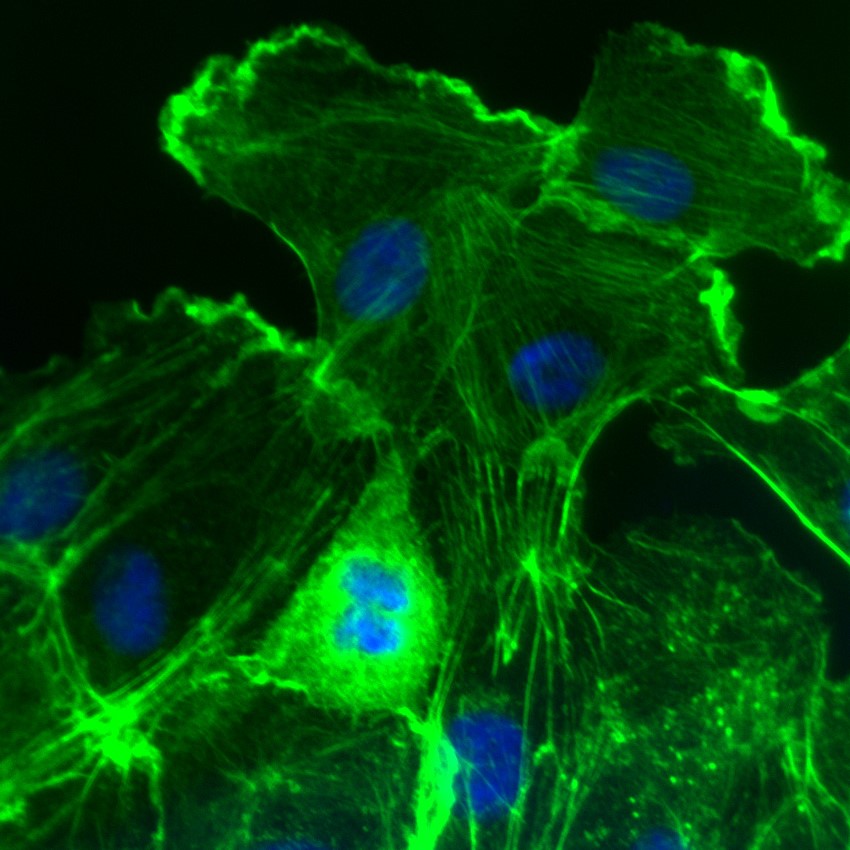Rho-family GTPases: Regulation by Opposing Tetraspanins in Dendritic Cells
- By Cytoskeleton Inc. - Small G-Protein News
- Feb 9, 2016

Recently, Jones et al. examined the role of Rho-family GTPases in the opposing effects of tetraspanins CD82 and CD37 in bone marrow-derived dendritic cell (BDMC) migration and T cell activation by antigen presentation. Tetraspanins regulate dendritic cell motility and antigen presentation. BMDC activation upregulates CD82, resulting in decreased cell migration and increased T cell activation via stabilization of T cell/dendritic cell interactions. Conversely, CD37 is downregulated and has the opposite response. Deletion of either protein alters cell morphology and the actin and tubulin cytoskeleton. To examine the role of RhoA, Rac1, and Cdc42 in these changes, GTPase activities in cells from either knock-out (CD37 or CD82) or wild-type mice were quantified. Using the cell-permeable Rho/Rac/Cdc42 activator CN04, the authors found that CD82 negatively regulates RhoA while CD37 (but not CD82) regulates Rac1. Both tetraspanins negatively regulate Cdc42. Cytoskeleton's cell permeable Rho/Rac/Cdc42 activator I (Cat.# CN04) and the RhoA (Cat.# BK124), Rac1 (Cat.# BK128), and Cdc42 (Cat.# BK127) G-LISA activation assays were essential reagents in this study. These reagents provided a sensitive measure of Rho-family GTPase activity to discover how these GTPases differentially contribute to the tetraspanin-mediated regulation of BDMC migration and T cell activation in the initiation of adaptive immunity.
Cdc42 G-LISA Activation Assay Kit (Colorimetric format) 96 assays: Cat. # BK127
Rac1 G-LISA Activation Assay Kit (Colorimetric Based) 96 assays: Cat. # BK128
Rho/Rac/Cdc42 Activator I: Cat. # CN04

